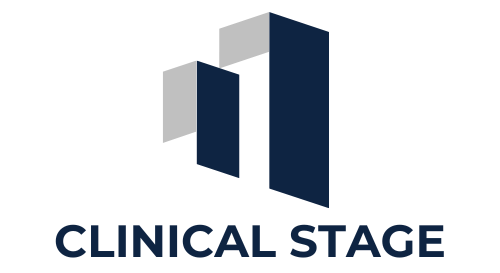Overcoming Challenges in Drug Development with AI-Driven Precision Medicine
The traditional drug development process is fraught with numerous challenges, including high failure rates, exorbitant costs, and lengthy timelines. These hurdles often result in significant financial burdens and delays in bringing new therapies to patients who need them most. Additionally, the complexity of understanding disease mechanisms further complicates the development of effective treatments.
AI-driven precision medicine emerges as a transformative approach to address these issues. By leveraging artificial intelligence (AI) and machine learning (ML), precision medicine can enhance the efficiency, accuracy, and speed of drug development. This blog aims to explore how AI-driven precision medicine can overcome regulatory challenges and accelerate the drug development process, ultimately leading to more effective and personalized treatments for patients.
Traditional Drug Development Challenges
High Failure Rates and Costs
The drug development process is notoriously high-risk, with a staggering failure rate. According to recent statistics, approximately 90% of drug candidates fail to reach the market after entering clinical trials. This high attrition rate results in substantial financial losses for pharmaceutical companies. On average, bringing a new drug to market can cost upwards of $2.6 billion, considering both the direct costs of development and the expenses associated with failed trials. These exorbitant costs and high failure rates underscore the need for more efficient and effective approaches in drug development.
Lengthy and Resource-Intensive Clinical Trials
Traditional clinical trials are lengthy and resource-intensive, often taking 10-15 years from initial discovery to market approval. The phases of clinical trials—Phase I (safety), Phase II (efficacy), and Phase III (confirmation)—require substantial time and financial investment. Moreover, the inefficiencies in patient recruitment, data collection, and trial management contribute to these extended timelines. The prolonged process not only delays access to potentially life-saving treatments but also escalates the overall cost of drug development.
Limited Understanding of Disease Mechanisms
A significant challenge in traditional drug development is the limited understanding of complex disease mechanisms. Diseases, particularly chronic and multifactorial conditions like cancer and neurodegenerative disorders, involve intricate biological pathways and interactions that are not fully understood. This lack of comprehensive knowledge impedes the development of effective therapies, as drug candidates often fail to target the underlying causes of the disease accurately. Consequently, many promising drugs fail in late-stage clinical trials due to unforeseen safety issues or lack of efficacy.
In summary, the traditional drug development process faces considerable challenges, including high failure rates, substantial costs, lengthy timelines, and limited understanding of disease mechanisms. Addressing these issues requires innovative approaches that can enhance efficiency, reduce costs, and improve the success rates of new drug candidates. AI-driven precision medicine offers a promising solution to these challenges, which will be explored in the subsequent sections of this blog.
The Promise of AI-Driven Precision Medicine
Introduction to AI and Machine Learning in Medicine
Artificial Intelligence (AI) and Machine Learning (ML) are rapidly transforming various fields, including medicine. AI refers to the simulation of human intelligence processes by computer systems, while ML is a subset of AI that involves the use of algorithms and statistical models to enable computers to learn from and make predictions based on data. In medicine, these technologies are applied to analyze vast amounts of data, identify patterns, and make informed predictions.
In the context of precision medicine, AI and ML are used to analyze genomic data, medical records, and other health-related information to develop personalized treatment plans. These technologies can predict how patients will respond to specific treatments, identify new drug targets, and optimize clinical trial designs. By leveraging AI and ML, precision medicine aims to provide more effective and individualized therapies, thereby improving patient outcomes and reducing healthcare costs.
Notable Labs' Predictive Precision Medicine Platform (PPMP)
Notable Labs exemplifies the potential of AI-driven precision medicine through its Predictive Precision Medicine Platform (PPMP). This platform integrates genomic data, drug response patterns, and clinical outcomes to predict the most effective treatments for individual patients. By analyzing genetic information and drug response data, the PPMP can identify which therapies are likely to be most beneficial for specific patient profiles.
The PPMP uses advanced ML algorithms to continuously learn from new data, refining its predictions and improving accuracy over time. This dynamic approach enables the platform to adapt to new findings and incorporate the latest scientific knowledge. Notable Labs' PPMP demonstrates how AI-driven precision medicine can enhance the drug development process by providing more accurate predictions of treatment efficacy, thereby reducing the time and cost associated with clinical trials.
In summary, AI and ML are revolutionizing precision medicine by enabling the analysis of complex data sets and the development of personalized treatment plans. Notable Labs' Predictive Precision Medicine Platform showcases the potential of these technologies to improve drug discovery and development, ultimately leading to better patient outcomes and more efficient healthcare delivery.
Addressing Regulatory Challenges with AI
Importance of Transparency in AI-Driven Models
One of the key regulatory challenges in deploying AI-driven precision medicine is ensuring the transparency and interpretability of AI models. Regulators and stakeholders need to understand how AI models make predictions to ensure their reliability and safety in clinical applications. Transparency is crucial for building trust among healthcare providers, patients, and regulatory bodies. It allows for thorough evaluation and validation of AI models, ensuring they operate as intended and do not introduce biases or errors.
Methods for Ensuring Interpretability and Reliability
Several methods can enhance the interpretability and reliability of AI models in precision medicine:
- Explainable AI (XAI): Techniques such as feature importance scores, decision trees, and rule-based systems can provide insights into how AI models make decisions. These methods help in explaining the model’s predictions in a human-understandable manner.
- Model Audits: Regular audits and reviews of AI models by independent experts can help identify potential biases and ensure compliance with regulatory standards.
- Transparent Documentation: Providing comprehensive documentation that details the model’s development, data sources, and decision-making processes can enhance transparency. This includes explaining the model's architecture, training process, and validation results.
Role of Validation Studies in Demonstrating Model Robustness
Validation studies are essential for demonstrating the robustness and accuracy of AI models. These studies involve testing the AI models on independent datasets to evaluate their performance in different scenarios. Validation studies help in identifying any limitations or biases in the models and provide evidence of their reliability and generalizability. Rigorous validation is crucial for gaining regulatory approval and ensuring that AI-driven precision medicine tools are safe and effective for clinical use.
Generating Real-World Evidence to Support Regulatory Approval
Real-world evidence (RWE) plays a significant role in supporting the regulatory approval of AI-driven precision medicine. RWE involves collecting and analyzing data from actual clinical settings to assess the performance of AI models in real-world scenarios. This evidence helps regulators understand how AI models perform outside controlled experimental environments and ensures their practical applicability.
- Prospective Studies: Conducting prospective studies that follow patients over time can provide valuable insights into the long-term effectiveness and safety of AI-driven treatments.
- Retrospective Analyses: Analyzing historical patient data can help validate AI models by comparing predicted outcomes with actual clinical results.
- Post-Market Surveillance: Continuous monitoring of AI tools after they are deployed in clinical settings ensures they maintain their performance and safety standards over time.
By focusing on transparency, interpretability, and robust validation through real-world evidence, the regulatory challenges associated with AI-driven precision medicine can be effectively addressed. These steps are critical for gaining regulatory approval and ensuring that AI models are reliable, safe, and beneficial for patient care.
Streamlining Clinical Trials with AI
AI-driven precision medicine can significantly streamline clinical trials through selective patient enrollment. By analyzing genetic, proteomic, and other relevant data, AI models can predict which patients are most likely to respond to investigational therapies. This targeted approach ensures that clinical trials enroll patients who have the highest probability of benefiting from the treatment, thereby enhancing the efficiency and effectiveness of the trials.
Selective patient enrollment using AI has several advantages:
- Higher Response Rates: By identifying and enrolling patients who are more likely to respond to the treatment, clinical trials can achieve higher overall response rates. This increases the likelihood of demonstrating the efficacy of the investigational therapy.
- Reduced Adverse Events: AI models can also predict patients' risk of experiencing adverse events. By avoiding the enrollment of high-risk patients, clinical trials can minimize adverse effects, ensuring a safer trial environment and more reliable results.
A notable example of AI-driven precision medicine in action is the Acute Myeloid Leukemia (AML) trial conducted using Notable Labs' Predictive Precision Medicine Platform (PPMP). This trial aimed to evaluate the efficacy of the VenDec therapy, a combination treatment for AML. The PPMP was employed to predict patient responses to this investigational therapy by analyzing genomic data, drug response patterns, and clinical outcomes.
The results of the AML trial were remarkable. The PPMP achieved 100% accuracy in predicting which patients would respond positively to the VenDec therapy. This level of precision not only validated the effectiveness of the AI-driven approach but also demonstrated the potential for such platforms to revolutionize clinical trial processes.
The success of the AML trial using the PPMP has significant implications for the future of clinical trials and regulatory approval:
- Increased Efficiency: By accurately predicting patient responses, AI-driven platforms can streamline patient enrollment, reduce the number of required participants, and shorten trial durations.
- Cost Savings: Enhanced precision in patient selection reduces the overall cost of clinical trials by minimizing wasted resources on non-responders and adverse events
- Regulatory Confidence: Demonstrating high accuracy and reliability in predicting patient outcomes can build confidence among regulatory bodies, potentially leading to faster approval processes.
- Personalized Medicine: The ability to tailor treatments to individual patient profiles paves the way for more personalized and effective therapies, improving overall patient outcomes.
AI-driven precision medicine has the potential to significantly streamline clinical trials through selective patient enrollment. The success of case studies like the AML trial underscores the transformative impact of AI in predicting patient responses, enhancing trial efficiency, and improving the overall drug development process. By leveraging AI technologies, the pharmaceutical industry can overcome traditional challenges, accelerate innovation, and bring life-saving treatments to market more swiftly and safely.
Collaborative Efforts in AI-Driven Precision Medicine
The successful integration of AI-driven precision medicine into drug development requires robust collaboration between key stakeholders: industry leaders, regulatory bodies, and academic institutions. Each of these entities brings unique strengths and perspectives that are crucial for advancing AI technologies and ensuring their safe and effective implementation.
- Industry Leaders: Pharmaceutical and biotech companies possess the resources and expertise to develop and commercialize AI-driven solutions. Their involvement is essential for translating scientific discoveries into market-ready products.
- Regulatory Bodies: Organizations such as the FDA and EMA provide the necessary oversight to ensure that AI-driven therapies are safe and effective. Their role includes establishing guidelines and frameworks that facilitate the approval process for innovative treatments.
- Academic Institutions: Research universities and institutes are at the forefront of scientific discovery and technological innovation. They contribute valuable knowledge and research capabilities that drive the development of new AI algorithms and models.
Fostering Open Dialogue and Sharing Best Practices
Collaboration between these stakeholders is vital for fostering open dialogue and sharing best practices. This can be achieved through:
- Consortia and Working Groups: Establishing collaborative consortia and working groups that bring together representatives from industry, regulatory bodies, and academia can facilitate knowledge exchange and collective problem-solving.
- Workshops and Conferences: Regular workshops and conferences provide platforms for stakeholders to discuss advancements, challenges, and regulatory considerations related to AI-driven precision medicine.
- Public-Private Partnerships: Forming public-private partnerships can pool resources and expertise from various sectors, accelerating the development and implementation of AI technologies in drug discovery.
To fully realize the potential of AI-driven precision medicine, innovative approaches to regulatory approval are necessary. Traditional regulatory frameworks may not adequately address the unique aspects of AI technologies, such as continuous learning algorithms and complex data integration. Therefore, developing new regulatory pathways and guidelines that accommodate these innovations is crucial.
- Adaptive Regulatory Pathways: Creating adaptive regulatory pathways that allow for iterative testing and validation of AI models can ensure that these technologies are continuously improved and updated based on real-world data.
- Regulatory Sandboxes: Establishing regulatory sandboxes where companies can test AI-driven solutions in a controlled environment under the supervision of regulators can help identify potential issues early and streamline the approval process.
Ensuring Timely and Efficient Access to Life-Saving Treatments
One of the primary goals of AI-driven precision medicine is to provide timely and efficient access to life-saving treatments. Streamlining the regulatory approval process is essential for achieving this goal.
- Accelerated Approval Programs: Implementing accelerated approval programs for AI-driven therapies that demonstrate significant potential can help bring effective treatments to market more quickly.
- Real-Time Monitoring and Feedback: Utilizing AI for real-time monitoring and feedback during clinical trials can provide regulators with up-to-date information on treatment efficacy and safety, facilitating faster decision-making.
- Harmonized Global Regulations: Promoting harmonization of regulatory standards across different regions can simplify the approval process for AI-driven therapies, allowing for more efficient global access to innovative treatments.
In summary, collaborative efforts between industry, regulatory bodies, and academic institutions are essential for advancing AI-driven precision medicine. By fostering open dialogue, sharing best practices, and adopting innovative regulatory approaches, these stakeholders can streamline the approval process and ensure that life-saving treatments reach patients more quickly and efficiently. Such collaborative efforts will be pivotal in overcoming the traditional challenges of drug development and ushering in a new era of personalized healthcare.
The Future of AI-Driven Precision Medicine
Navigating the regulatory landscape is one of the significant challenges facing the implementation of AI-driven precision medicine. Traditional regulatory frameworks may not be fully equipped to handle the complexities and rapid advancements associated with AI technologies. However, there are several ways to overcome these regulatory hurdles:
- Enhanced Transparency and Explainability: Ensuring that AI models are transparent and explainable is critical for gaining regulatory approval. Regulators need to understand how AI models make decisions and verify that these decisions are based on robust and unbiased data.
- Rigorous Validation and Testing: AI-driven precision medicine must undergo rigorous validation and testing to demonstrate its safety and efficacy. This includes extensive clinical trials and real-world evidence studies to provide comprehensive data on the performance of AI models.
- Collaborative Regulatory Frameworks: Developing collaborative regulatory frameworks that involve close cooperation between industry, academic institutions, and regulatory bodies can help address the unique challenges of AI in healthcare. This collaborative approach can lead to the creation of adaptive regulatory pathways that accommodate the dynamic nature of AI technologies.
The integration of AI into the regulatory process has the potential to streamline and enhance the efficiency of drug development and approval. Some potential benefits include:
- Accelerated Drug Approval: AI can expedite the drug approval process by providing real-time data and insights, reducing the time required for regulatory review and decision-making.
- Continuous Monitoring and Post-Market Surveillance: AI can facilitate continuous monitoring and post-market surveillance of approved therapies, ensuring ongoing safety and efficacy. This real-time feedback loop can help regulators make informed decisions and address any emerging issues promptly.
- Global Harmonization of Standards: AI-driven approaches can promote the harmonization of regulatory standards across different regions, making it easier to bring innovative therapies to global markets.
The future of AI-driven precision medicine is bright, with the potential to transform personalized and targeted therapies fundamentally. By navigating the regulatory landscape effectively and leveraging AI's capabilities, the healthcare industry can overcome traditional challenges, streamline the drug development process, and ensure that patients receive the most effective and personalized treatments available. As stakeholders continue to collaborate and innovate, the promise of AI-driven precision medicine will become increasingly realized, leading to significant advancements in healthcare and improved patient outcomes.
Conclusion
AI-driven precision medicine represents a paradigm shift in the way we approach drug development and personalized healthcare. By leveraging the power of artificial intelligence and machine learning, we can significantly enhance the efficiency, accuracy, and speed of developing new therapies. The ability to analyze vast amounts of data and predict patient responses allows for more personalized treatments, ultimately leading to better patient outcomes and reduced healthcare costs. Notable Labs' Predictive Precision Medicine Platform (PPMP) and other similar innovations exemplify how AI can revolutionize the drug discovery process, from selective patient enrollment in clinical trials to the development of targeted therapies.
The successful integration of AI-driven precision medicine into mainstream healthcare requires robust collaboration among industry leaders, regulatory bodies, and academic institutions. By fostering open dialogue, sharing best practices, and working together on innovative regulatory approaches, these stakeholders can overcome traditional challenges and accelerate the development of life-saving treatments. Public-private partnerships, regulatory sandboxes, and adaptive regulatory pathways are just a few examples of how collaborative efforts can streamline the approval process and ensure timely access to new therapies.
The future of healthcare is undeniably moving towards more personalized and targeted treatments. AI-driven precision medicine holds immense promise in making this vision a reality. However, navigating the regulatory landscape remains a critical challenge. Ensuring transparency, rigorous validation, and continuous collaboration will be key to overcoming these hurdles.
As we look ahead, it is essential for academic researchers, industry stakeholders, and regulatory bodies to invest in AI-driven drug discovery and development. By embracing these technologies and working together, we can pave the way for a more efficient, effective, and patient-centric healthcare system. The promise of AI-driven precision medicine is not just in its ability to innovate but in its potential to transform lives, making personalized healthcare accessible to all.
In conclusion, the transformative potential of AI-driven precision medicine is vast and far-reaching. Through collaborative efforts and innovative approaches, we can overcome regulatory challenges and usher in a new era of personalized healthcare. Now is the time to support and invest in these advancements, ensuring that the future of medicine is both bright and inclusive.










